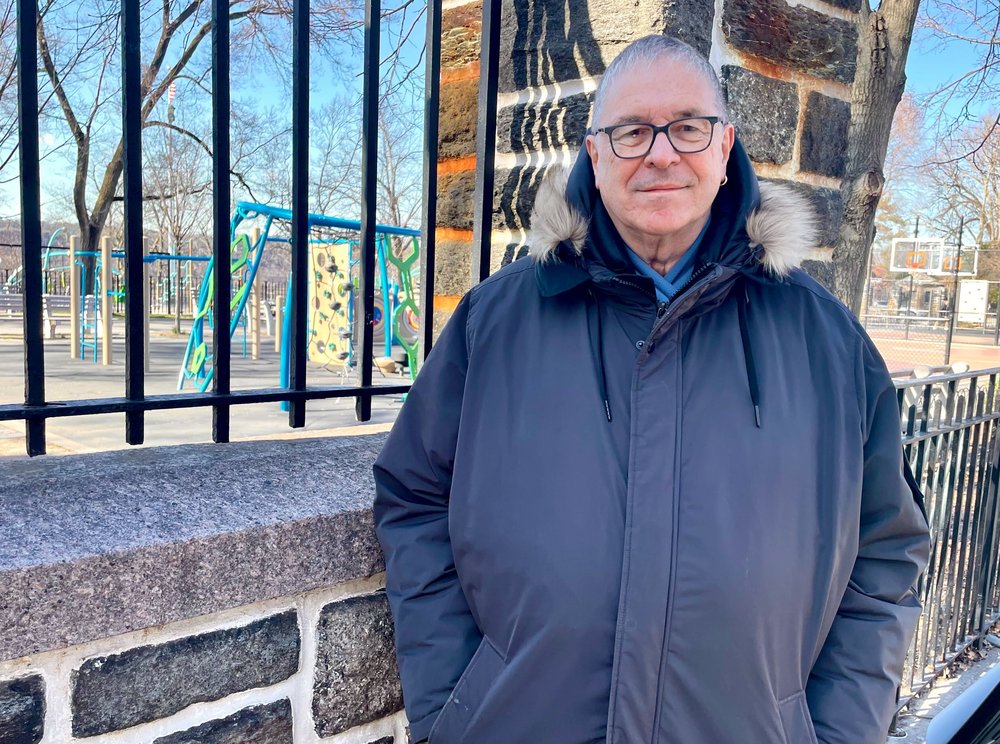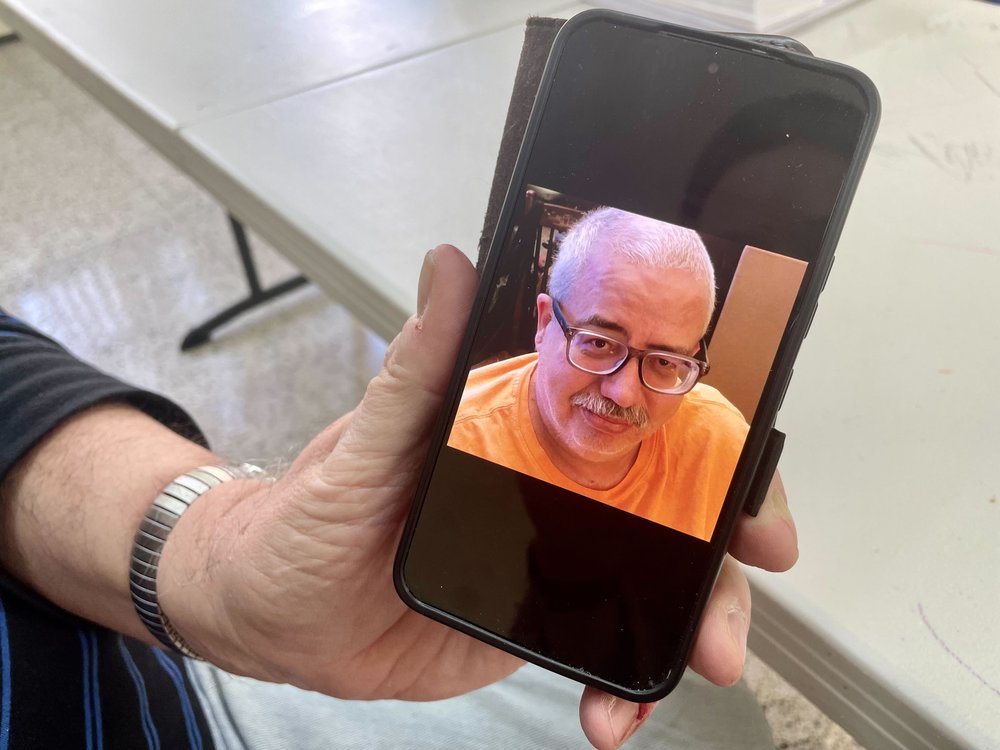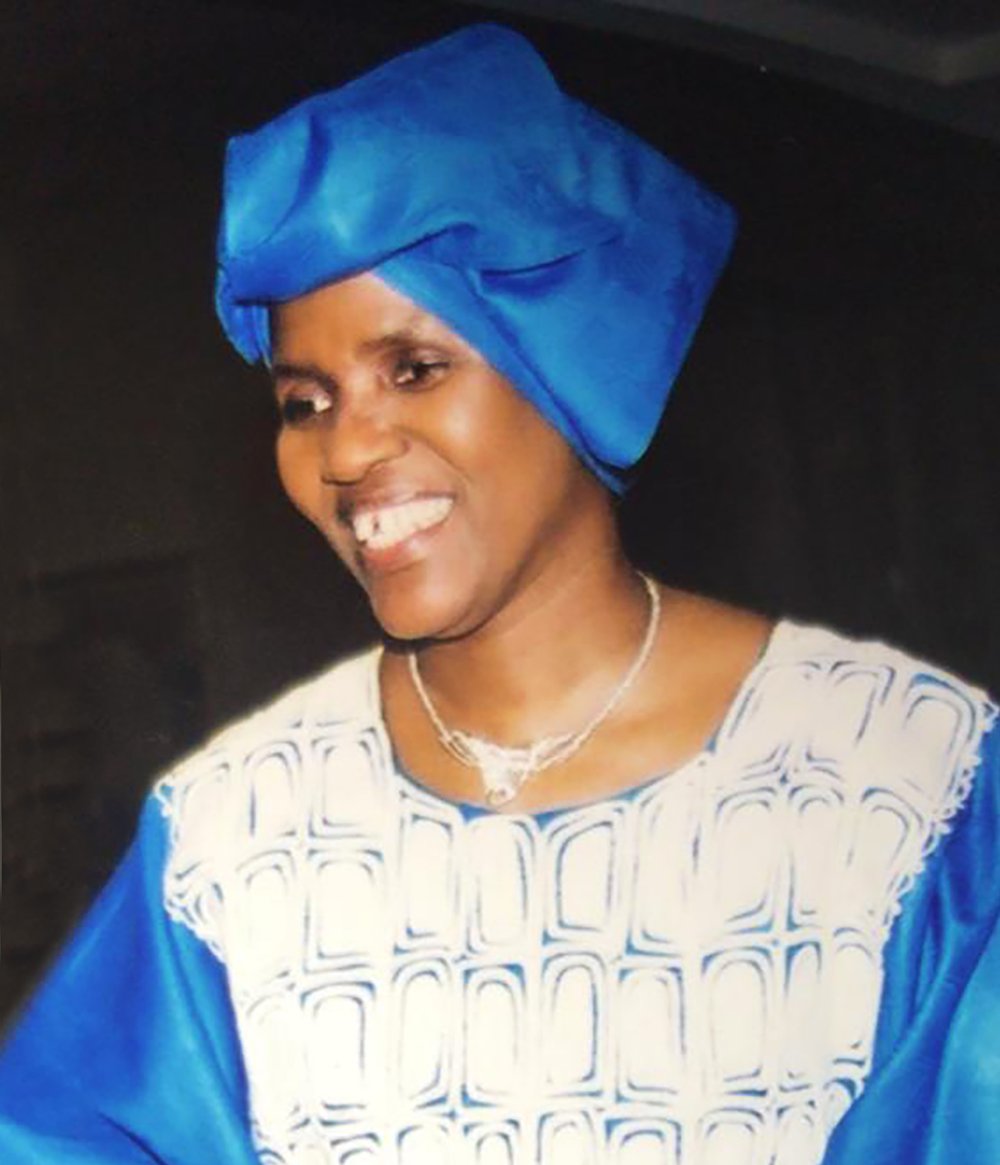3 years after NYC’s first COVID death, grievers find support with one another
March 14, 2023, 6 a.m.
Members of COVID-19 support groups said they are united by the difficulties each has faced losing a loved one to a virus that has been politicized and, in some circles, dismissed as a cause of death.

Ed Koenig is busy most Thursday evenings.
Shortly after his husband, Jody Settle, died of COVID-19 in April 2020, he began attending weekly support meetings with other survivors via Zoom from his Upper Manhattan apartment in Fort George. And he's kept at it. The camaraderie has provided him with support as he's continued to navigate the difficult and isolating reality of COVID loss.
"I think that the whole world refused to provide comfort, so we provide a comfort for ourselves,” Koenig said.
Tuesday marks three years since NYC reported its first COVID death, and since then, more than 45,000 New Yorkers have succumbed across the five boroughs, according to the Centers for Disease Control and Prevention. The losses have left a shadow of grief in their wake across the city, as families, spouses, children and friends mourn their loved ones.
Amid the sorrow, many have found support, healing and understanding among one another in groups like the one Koenig joins each week. Several people who lost loved ones to COVID said that sharing stories, care, and coping strategies has helped them begin to heal.
The support meetings are organized by COVID Survivors for Change, a national organization that advocates for better support for those who lost loved ones to the virus. Members of the group have been convening virtually since September 2020. More than 40 people took part at a meeting earlier this month.
Participants said they are united, in part, by the difficulties each has faced losing a loved one to a virus that has been politicized and, in some circles, dismissed as a cause of death. To lose a loved one to COVID, Koenig said, has meant facing a barrage of questions about where the person may have contracted the virus, whether they died “with” the coronavirus or “of” the coronavirus, and if they had any underlying conditions.
“I always like to think, yeah, they all had an underlying condition: They were alive, now they're not,” Koenig said.

CDC data puts COVID-19’s death toll at more than 1.1 million nationally — with nearly 160,000 deaths happening since this time a year ago, despite widespread immunity, lower infection rates and the availability of vaccines that are largely effective at preventing serious disease and death.
These losses have had a profound impact on how the city – and the nation – understand and experience grief, said R. Abby Spilka, a bereavement counselor at Calvary Hospital, which has locations in Brooklyn, Manhattan, Queens and the Bronx and runs a COVID grief support group for all New Yorkers. This winter’s swell was lower than what happened when the omicron variant arrived a year ago, but it’s still claimed the lives of nearly 1,200 New Yorkers since the start of 2023. (By comparison, NYC has recorded about 60 murders this calendar year).
I kind of feel like with COVID grief, we are being left behind.
Kpana Kpoto, Bronx resident
Processing COVID grief early in the pandemic, Spilka said, stood in stark contrast to the way people typically mourn – many had to say goodbye to their loved ones virtually, or spent a long period of time after a loss on their own. Deaths from the coronavirus also often resulted in “secondary losses,” she said – some people had to move, some families lost income and some children had to change guardians, schools, and communities.
Koenig said the months after his husband passed were like “a fog.” The pair had been together for 33 years, and had often spent time at their local church and the nearby park. Settle had multiple sclerosis and was in a wheelchair, but Koenig said he liked to use the parallel bars at the park’s jungle gym to practice walking.
Settle came down with COVID-19 during the height of the city’s lockdown, when hospitals had strict visiting rules and gathering was forbidden. When he died, Koenig was left to grieve on his own.
“We didn't have the usual rituals – getting together and remembering stories,” Koenig said. “I basically came home and sat there by myself, wallowing on whatever was bothering me, and went through the summer.”
Processing grief, finding support
In COVID Survivors for Change’s weekly support group, participants learn coping strategies for grief and share the challenges and breakthroughs they’ve each experienced.
Most participants are processing COVID loss, though some who have joined more recently are coping with long COVID symptoms. Between calls, they check in with each other, providing a network of people willing to pick up the phone late at night, Koenig said.
Bronx resident Kpana Kpoto, who also participates in the weekly support groups, said the politicization of the coronavirus has made processing her mother’s death from COVID in May 2020 that much more difficult.
“It's like they're accusing your loved one of something,” Kpoto said. “You're constantly being traumatized every day by some comments somebody makes or some reaction that they have, or even the fact that they don't even acknowledge that your loved one even passed from this deadly disease.”

Kpoto’s mother caught the coronavirus at a nursing home in Maryland, she said. State lockdown orders meant that she couldn’t say goodbye in person, and could only attend the funeral over Zoom. It was a traumatic experience, Kpoto said, and one that she feels many people have forgotten about.
“I kind of feel like with COVID grief, we are being left behind,” Kpoto said. “We've lost so many people – over 1 million people – and it's as if it's just nothing and people are moving on with their lives.”
But even those who haven’t had a loved one pass from the virus still have had their lives changed as a result of COVID-19’s fallout, said Spilka, the bereavement counselor.
“As a town of 8 million people, everyone is walking around with something,” Spilka said. “We grieve all of our losses, and that can be everything from if you lost your job because of COVID, if you had to start working at home because of COVID, because your office closed, if your children had to disrupt their routine and learn at home – everybody had these losses.”
She believes those wider, collective losses can help us better understand each other, and show more care for people still grieving, she added.
“I hope that makes the world at large, and this country, and New York City more compassionate,” Spilka said. “We really need that right now.”